Speakers
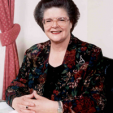
Alyson Bailes
Visiting Professor, University of Iceland in Reykjavik
Alyson J.K. Bailes (UK) is a Visiting Professor at the University of Iceland in Reykjavik, teaching on general security topics and on Nordic and European security. From July 2002-August 2007 she was Director of the Stockholm International Peace Research Institute (SIPRI). Alyson Bailes’ former career was spent largely in the British Diplomatic Service which she joined in 1969 after graduating from the University of Oxford. Her foreign postings included Hungary, the UK delegation to NATO, Bonn, Beijing, Oslo, and finally the post of British Ambassador at Helsinki. In between she had assignments in London including as Head of Security Policy, and a number of career breaks and sabbaticals which included a spell as assistant to the EC's 1979 Committee of Wise Men and three years as Political Director of Western European Union (1997-2000). Her academic attachments included the Royal Institute of International Affairs (Chatham House) in London and the EastWest Institute at New York. Professor Bailes has published widely on topics of general security policy development, European security and defence, arms control issues and European relations with China. Her recent and current research interests include the roles of non-state actors in security, comparative Nordic studies and the emerging High North agenda. She is a member of the Boards of several think-tanks, academic organizations and periodicals.

Leszek Balcerowicz
Professor of Economics at the Warsaw School of Economics
Leszek Balcerowicz is a Professor of Economics at the Warsaw School of Economics (WSE), he is former Deputy Prime Minister and Minister of Finance, former President of the National Bank of Poland (NBP). He is the architect of Poland's economic reforms initiated in 1989; he has been at the center of Poland's economic and political life since the fall of communism in Poland in 1989. Author of more than 100 publications on economic issues in Poland and abroad. Recipient of numerous honours from universities and awards worldwide. Awarded with Poland's highest decoration ‐ Order of the White Eagle ‐ for his contribution to the system transformation (2005). Since 2006 Leszek Balcerowicz has belonged to the Distinguished Associates of the International Atlantic Economic Society (IAES), founded in 1973; the IAES serves as an educational and scientific forum for the global community of well‐known economists from around the world. In 2006 Leszek Balcerowicz became a member of the Group of Trustees, Institute of International Finance as well. The Group is engaged in the introduction and development of good practices concerning capital flows and debt restructuring in emerging markets.
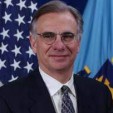
Hans Binnendijk
Senior Fellow, SAIS Center for Transatlantic Relations, Johns Hopkins University
Dr. Hans Binnendijk is a Senior Fellow at the SAIS Center for Transatlantic Relations. Until July 4, 2012, he was the Vice President for Research and Applied Learning at the National Defense University and Theodore Roosevelt Chair in National Security Policy. He was also Director of the Institute for National Strategic Studies. From 2001 to 2009 he was the founding Director of the Center for Technology and National Security Policy at NDU. He previously served on the National Security Council staff as Special Assistant to the President and Senior Director for Defense Policy and Arms Control (1999-2001). From 1994 to 1999, Dr. Binnendijk was Director of the Institute for National Strategic Studies at the National Defence University. Prior to that, he was Principal Deputy Director and Acting Director of the State Department's Policy Planning Staff (1993-1994). He has received numerous awards for his government service, including two Distinguished Public Service Awards and a Superior Service Award. In academia, Dr. Binnendijk was Director of the Institute for the Study of Diplomacy at Georgetown University, where he was also the Marshall B. Coyne Research Professor at the Edmund A. Walsh School of Foreign Service (1991-1993). He was Deputy Director and Director of Studies at London's International Institute for Strategic Studies and Editor of Survival from 1988-1991. Dr. Binnendijk serves on the Board of Overseers of the Fletcher School of Law and Diplomacy, on the Studies Committee of the Council on Foreign Relations, and as Vice Chairman of the Board of Humanity in Action. He has received the Cross of the Order of Merit from the Federal Republic of Germany. Dr. Binnendijk is a 1968 graduate of the University of Pennsylvania. He received his M.A.L.D. and his Ph.D. in international relations from the Fletcher School of Law and Diplomacy, Tufts University.
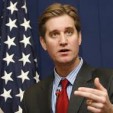
Matthew Bryza
Director, International Centre for Defence in Estonia
Matthew Bryza is the Director of the International Centre for Defence studies in Tallinn, Estonia and a Senior Fellow with the Atlantic Council’s Dinu Patriciu Eurasia Centre. He resides in Istanbul, where he also works as a business consultant and board member of several private companies. His most recent assignment was as the U.S. Ambassador to Azerbaijan from February 2011 to January 2012. During 2005 to 2009, Ambassador Bryza served as Deputy Assistant Secretary of State for Europe and Eurasia, with responsibility for the South Caucasus, Turkey, Greece, Cyprus, and Eurasian energy. Ambassador Bryza simultaneously served as the US co-Chair of the OSCE’s Minsk Group mediating the Nagorno-Karabakh conflict, and as U.S. mediator of the Cyprus, South Ossetia, and Abkhazia conflicts. During 2001 to 2005, Ambassador Bryza served in the White House as Director for European and European Affairs on the National Security Council Staff. Previous assignments include Deputy to the Special Advisor to the President and Secretary of State on Caspian Energy, and Political Officer at the US Missions to Russia (1995-97) and Poland (1989-91).

Bernard Cazeneuve
Minister Delegate for European Affairs of France
Bernard Cazeneuve is Minister Delegate for European Affairs of France since May 2012. He was National Assembly Deputy for Manche Department from 2007 till 2012, and also from 1997 till 2002. Since 2008 he is President of the Cherbourg Urban Community. Parallel to that he has pursued his professional career in legal field, working as Business lawyer from 2006 till 2008, Barrister at the Cherbourg-Octeville Bar in 2003 and Accredited judge at the Court of Justice of the French Republic from 1997 till 2002. He has graduate degree from Bordeaux Institute of Political Studies.

Robert Cottrell
Co-founder of TheBrowser.com
Robert Cottrell is the founder of TheBrowser.com, and a former staff correspondent for The Economist and the Financial Times. He was Moscow bureau chief for The Economist in 1995-1998, and for the Financial Times in 2001-2003. He is a regular contributor to the New York Review of Books, mainly on Russian topics. He has written two studies on European Union enlargement for the Economist Intelligence Unit. He lives in Riga, where he is a co-founder of the Isaiah Berlin Association.

Charles Crawford
Previously British Ambassador to Sarajevo, Belgrade and Warsaw and a founding partner of ADRg Ambassadors LLP
Charles Crawford retired from the Foreign and Commonwealth Office at the end of 2007 after nearly three decades in the UK's Diplomatic Service, most of it spent serving in or dealing with communist and post-communist Europe. His first job on joining the FCO in 1979 was to head the Indonesia Section, followed by his first posting, to communist post-Tito Yugoslavia. He returned to London in 1984 and after a year on the Aviation Desk was appointed FCO Speech-writer. He was posted to South Africa in 1987 as part of the Embassy team led by Ambassador Robin Renwick working to end apartheid. Returning to London in 1991 he worked in the FCO Department dealing with the Soviet Union as communist rule collapsed. He then spent three years in Moscow as Political Counsellor and then served three times as HM Ambassador: in Sarajevo (1996-1998); in Belgrade (2001-2003) and most recently in Poland (2003-2007). He is now pursuing a private consultancy career from his home in Oxfordshire in England.

Marek Dabrowski
Research Fellow at the Centre for Social and Economic Research (CASE), former President of the CASE in Warshaw, Poland
Marek Dabrowski is also the Professor of Economics and member of the Scientific Council of the Gaidar Institute for Economic Policy in Moscow. From the end of 1980s he has been involved in policy advising and policy research in Azerbaijan, Belarus, Bulgaria, Egypt, Georgia, Iraq, Kazakhstan, Kyrgyzstan, Macedonia, Moldova, Mongolia, Poland, Romania, Russia, Serbia, Syria, Turkmenistan, Ukraine, Uzbekistan and Yemen and in a number of international research projects related to monetary and fiscal policies, financial crises, international financial architecture, EU and EMU enlargement, perspectives of European integration, European Neighborhood Policy and political economy of transition. Consultant of the World Bank and UNDP. He is the author of several academic and policy papers, and editor of several book publications.
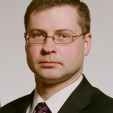
Valdis Dombrovskis
Prime Minister of Latvia
Valdis Dombrovkis has been appointed as Prime Minister of the Republic of Latvia in March 2009, now serving his second term in the office. In his political career he served as Minister of Finance (2002-2004), Advisor to the Minister of Economics (2004-2006), MP of the European Parliament, Head of the Latvian delegation in ETP-ED group (2004-2009), and Minister for Children, Family and Integration Affairs (2009). Prior to joining politics in 2002, he occupied various positions at the Bank of Latvia (1998-2002). He is Member of the Board of the political party “Unity”. Valdis Dombrovskis was born on 5 August 1971 in Riga, Latvia. He graduated from the University of Latvia, Faculty of Physics and Mathematics, (1993), and Riga Technical University, Faculty of Engineering and Economics (1995). In 1996, he accomplished his Master studies at the University of Latvia, Faculty of Physics and Mathematics. He also holds Professional Master’s degree in customs and tax administration from the Riga Technical University.
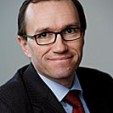
Espen Barth Eide
Defence Minister of Norway
Espen Barth Eide is Minister of Defence since November 11, 2011. He was State Secretary (Deputy Minister) in the Ministry of Foreign Affairs (MFA) from June 2010 till November 11, 2011. He also served as State Secretary in the MFA in the first Stoltenberg Government (2000-2001), and was State Secretary in the Ministry of Defence from October 2005 to June 2010. He represents the Labour Party and is responsible for international security policy, the UN, NATO, the OSCE, European security issues, international operations and bilateral relations with North America, Russia, Asia, and Africa. From 2002 to 2005 he was the Director of the Department of International Politics at the Norwegian Institute of International Affairs. In 2003 Mr Eide was selected as a “global leader of tomorrow” by the World Economic Forum at its annual meeting in Davos. Since 2001, Mr Eide has been a member of the Presidency of the Party of European Socialists. Over the last two decades he has had several assignments for the UN, including responsibility for directing the policy review on “integrated missions” commissioned by the UN Secretariat in 2004. Mr Eide also served as an expert adviser to the High-Level Panel on UN Reform, which completed its work in 2005. Mr Eide studied at the Universities of Oslo and Barcelona and has a graduate degree in political science.
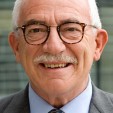
Uffe Ellemann-Jensen
Chairman of Baltic Development Forum
Uffe Ellemann-Jensen was Denmark’s minister for foreign affairs 1982-93. He was national chairman of Denmark’s Liberal Party (“Venstre”) 1984-98, and President of the European Liberal Party (ELDR) 1995-2000. He was a co-founder of Baltic Development Forum in 1998 and has been its chairman since then. Uffe Ellemann-Jensen has been a consistent supporter of both NATO and the European Union and of close relations with the U.S., often in the face of constant political battles with the left-wing opposition in Denmark and in other European countries. He was an active participant when the Baltic countries regained their independence in 1989. His proactive approach to Danish foreign policy continued after his eleven-year term as foreign minister. After leaving politics he joined a number of Danish and international companies as non-executive director: He is a director and trustee of Thomson-Reuters Founders Share Company. He is chairman of The Foreign Policy Society (Denmark), member of European Council of Foreign Relations and a trustee of International Crisis Group. Uffe Ellemann-Jensen is an adjunct professor at Copenhagen Business School. He has written a number of books on economics and politics – and fly fishing.
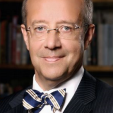
Toomas Hendrik Ilves
President of the Republic of Estonia
H.E. Mr.Ilves is the fourth and current President of Estonia. He is a former diplomat and journalist, was the leader of the Social Democratic Party in the 1990s and later a member of the European Parliament. President Ilves graduated from Columbia University and received his Master’s degree in Psychology from the University of Pennsylvania. Toomas Hendrik Ilves was a teacher and researcher at Columbia University in New York City and at the Open Education Center in Englewood, New Jersey. He worked as a researcher and Head of the Estonian Desk at Radio Free Europe in Munich, Germany. He served as Ambassador of the Republic of Estonia to the United States of America, Canada, and Mexico from 1993 until 1996. From 1996 to 1998, he was Minister of Foreign Affairs of the Republic of Estonia. After a brief period as Chairman of the North Atlantic Institute (1998), he was again appointed Minister of Foreign Affairs. From 2002 until 2004, he was a Member of the Parliament of the Republic of Estonia, and from 2004 until 2006, he was Member of the European Parliament. Toomas Hendrik Ilves was elected President of the Republic of Estonia on September 23 and sworn into office on October 9, 2006.
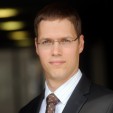
Gatis Junghans
Head of Trading, Latvenergo AS, Latvia
Gatis Junghans has more than 12 years long experience in power industry. Mr Junghans had held different positions in electricity transmission and distribution companies as well as in generation and trading company Latvenergo AS. Since 2005 he is in electricity trading. Currently Mr Junghans is head of trading at Latvenergo AS and also is CEO of Latvenergo subsidiaries in Estonia and Lithuania. Mr Junghans holds PhD in power engineering and MBA degree.
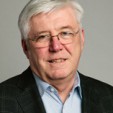
Craig Kennedy
President of the German Marshall Fund of the United States
Craig Kennedy has been president of the German Marshall Fund since 1995. Under Mr. Kennedy’s leadership, GMF has focused its activities on bringing North Americans and Europeans together on foreign policy, economics, immigration, urban policy and the environment. GMF has also expanded programs in Central and Eastern Europe and the Balkans. In 2003 the Balkan Trust for Democracy was launched, a $27 million grantmaking initiative to strengthen civil society and democracy, in partnership with the Mott Foundation and other American and European donors. In 2007, GMF launched with Mott Foundation support the Black Sea Trust, a public private partnership aimed at encouraging regional cooperation and development. GMF also operates several other large, multi-donor collaborations related to climate change, comparative domestic policy and Belarus. Prior to joining GMF, Kennedy was with the Joyce Foundation of Chicago from 1980 to 1992, serving as president of that institution for six years. From 1992 to 1995, he managed a consulting firm focused on public and nonprofit clients including the City of Chicago, the Environmental Defense Fund and National Audubon Society.
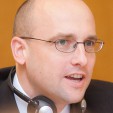
Andreas Klein
Konrad Adenauer Stiftung Representative to the Baltic States
Andreas Klein heads the Baltic Office of the Konrad-Adenauer-Stiftung (KAS) based in Riga. Mr. Klein holds a Master degree in Political Science at the University of Bonn/Germany. After studying in Bonn, Brussels and Jyväskylä/Finland he joined the Konrad-Adenauer-Stiftung in 2000 as resident representative of the foundation in Macedonia. After posts at KAS in Berlin and Dusselorf he moved to Riga in October 2007 from where he coordinates the foundation's project activities in Latvia, Lithuania and the Nordic States. He published numerous articles on the political developments in the Balkans and the Baltic States.
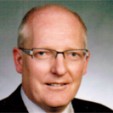
Thomas Kleine-Brockhoff
Resident fellow and senior director for strategy at the German Marshall Fund of the United States
Thomas Kleine-Brockhoff is a resident fellow and senior director for strategy at the German Marshall Fund of the United States. He leads GMF’s EuroFuture Project which explores the economic, the governance and the geostrategic dimensions of the Eurocrisis from a transatlantic perspective. Formerly, Mr. Kleine-Brockhoff was senior director for policy programs. In this capacity, he oversaw all GMF programs and projects that deal with the cross-border challenges which globalization presents to the transatlantic community: Trade, Foreign Aid, and Food Security, Climate Diplomacy and Energy Policy, Immigration and Integration as well as the Global Economic Governance (G-20) initiative. Mr. Kleine-Brockhoff has been an expert on transatlantic relations for more than a decade. Before arriving at GMF, he served as the Washington bureau chief of DIE ZEIT, Germany's intellectual weekly. Educated at Freiburg University in Germany with additional schooling at Georgetown University's McDonough School of Business, Kleine-Brockhoff was a fellow at the Center for European Studies at Harvard University. He was a witness to the U.S. Congress, has published widely in Europe and the United States and appears frequently as a commentator on radio and TV. He is a member of the German Council on Foreign Relations.
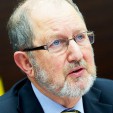
Karel Kovanda
Deputy Director-General (ret.), External Relations, European Commission
Amb Karel Kovanda retired on January 1, 2011, from the European Commission where he served as Deputy Director-General of External (Relex). His broad portfolio of responsibilities included Europe’s multilateral relations and human rights. He simultaneously served as the European Commission’s Political Director, both bilaterally as well as in the G8 context. From 1991 to 2005, Amb Kovanda worked as a senior diplomat in the Czech Foreign Service. He served as ambassador to NATO (1998-2005) and to the UN (1993-1997), including representing his country on the UN Security Council (1994-95). He received his PhD in Political Science from Massachusetts Institute of Technology.
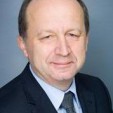
Andrius Kubilius
Prime Minister of the Republic of Lithuania
Andrius Kubilius graduated from Vilnius States University, Faculty of Physics, in 1979, and continued his studies at the same University, receiving a PhD in physics in 1984. In 1988, he joined Sajūdis – Reform Movement of Lithuania, later gaining the post of Executive Secretary. In 1992 Mr. Kubulius was elected to the Parliament. From 1996 until 1999 he served as First Deputy Speaker of the Seimas, and Chairman of the Parliamentary Committee on European Affairs. In the period of 1999-2000 he served as Prime Minister of the 10th Government of Lithuania. He returned to the Parliament in 2004 elected within the Antakalnis constituency (Vilnius). In October 2006 he was became Deputy Speaker of the Seimas, and Chairman of the Parliamentary Committee on European Affairs. On November 28, 2008 by Presidential Decree he was appointed as Prime Minister of Lithuania. Mr. Kubilius pursues wide-ranging interests: he is interested in political science, history, and the knowledge economy; he is a Chairman of the Policy Committee of the Knowledge Economy Forum. He was also Chairman of the Knowledge Society Council under the President of the Republic of Lithuania in 2001-2003. Kubilius has been a member of the international Advisory Board of the Baltic.

Hans Kundnani
Editorial Director of the European Council on Foreign Relations, The United Kingdom
Hans Kundnani is Editorial director at the European Council on Foreign Relations, which he joined in November 2009. He previously worked as a journalist and continues to write for various publications including The Guardian, The Observer, Financial Times, Prospect and the Times Literary Supplement. He is the author of „Utopia or Auschwitz: Germany's 1968 Generation and the Holocaust” (London/New York, 2009). He also organises the British-German Journalists' Conference. He studied German and philosophy at Oxford Univeristy and journalism at Columbia University.
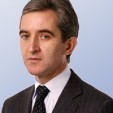
Iurie Leanca
Minister of Foreign Affairs of Moldova
Mr. Leancă was appointed as Deputy Prime Minister, Minister of Foreign Affairs and European Integration in 2009. He has been a member of the Liberal Democratic Party of Moldova (PLDM) since January 2009 and was elected as MP in April 2009 and July 2009 elections. From 2005 to 2009, Iurie Leancă was the Vice Chairman of the Foreign Policy Association of Moldova. From 2005-2007, he was Senior Adviser to the Organisation for Security and Co-operation in Europe (OSCE) High Commissioner on National Minorities. From 1998 to 1999, he served as Deputy Minister of Foreign Affairs. In 1999, Iurie Leancă was appointed as the first Deputy Minister of Foreign Affairs in the Cabinet of Ministers of the Alliance for Democracy and Reforms as well as in Vasile Tarlev’s Cabinet. Prior to that he has pursued his professional career in diplomatic service, working at the Embassy of Moldova in the United States and occupying various positions at the Ministry of Foreign Affairs of Moldova. Mr. Leancă graduated the State Institute of International Relations of Moscow.

Gustaf Lind
Swedish Ambassador for the Arctic, Ministry of Foreign Affairs of Sweden
Gustaf Lind has served as Sweden’s Arctic ambassador since 2010. When Sweden took over the chairmanship of the Arctic Council from Denmark in May 2011, he became the chair of the Arctic Council’s Senior Arctic Officials. From 2008 to 2010 Mr Lind served as the Swedish prime minister’s state secretary for foreign affairs and as such played a central role in leading the Swedish presidency of the European Union in the autumn of 2009. He was G8 sherpa for the EU presidency and prepared the European Councils during this period. From 2006 to 2008 Mr Lind was state secretary to the Swedish minister for migration. His responsibilities during this period included preparing a labour immigration reform that liberalised opportunities for foreign nationals to work in Sweden. Previously, he has worked with international law and human rights at the Ministry for Foreign Affairs. He received his doctorate in international law in 2004 with a dissertation on UN Charter law and regional organisations. He is a board member of the Swedish branch of the International Law Association.

Julian Lindley-French
Professor of Military Art and Science at the Royal Military Academy of the Netherlands and member of the Atlantic Council's Strategic Advisors Group
Julian Lindley-French is a Member of the Atlantic Council of the United States as well a Fellow of Respublica in London and Senior Associate Fellow of the Defence Academy of the United Kingdom. He is an advisor to Chief of the Defence Staff in London and Head of the Commander’s Initiative Group (CIG) for NATO’s Allied Rapid Reaction Corps (ARRC) in which he is leading efforts to operationalise the Comprehensive Approach. He is also a member of the Academic Advisory Board of the NATO Defence College in Rome and a Fellow of the Austrian Institute for European and Security Policy in Vienna. He was formerly Special Professor for Strategic Studies at Leiden University and a Course Director at the Geneva Centre for Security Policy. European Co-Chair of the US-European Working Group on Stabilisation and Reconstruction Missions for CSIS and Project Leader for the Atlantic Council’s Stratcon 2010 project on the NATO Strategic Concept. He received a Master’s Degree in International Relations (with distinction) from University of East Anglia in 1992 and a doctorate in political science from the European University Institute in Florence in 1996.
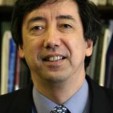
Bobo Lo
Independent Scholar and Consultant
Bobo Lo is an independent scholar and consultant. He was previously Director of the Russia and China Programmes at the Centre for European Reform; Head of the Russia and Eurasia Programme at Chatham House; and Deputy Head of Mission at the Australian Embassy in Moscow. Dr. Lo writes extensively on Russian and Chinese foreign policy. His books include Russia and the New World Disorder (Brookings and Chatham House, forthcoming in 2013), Axis of Convenience: Moscow, Beijing and the New Geopolitics (Brookings and Chatham House, 2008), Vladimir Putin and the Evolution of Russian Foreign Policy (Blackwell and Chatham House, 2003), and Russian Foreign Policy in the Post Soviet Era: Reality, Illusion and Mythmaking (Palgrave Macmillan, 2002). Bobo Lo has an MA from Oxford and a PhD from the University of Melbourne.
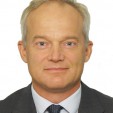
Nikita Lomagin
Professor of World Economy at St. Petersburg State University and Academic Director of ENERPO at European University at St. Petersburg
Nikita Lomagin is Professor of World Economy at St. Petersburg State University and Academic Director of ENERPO at European University at St. Petersburg. He was Deputy Dean and Associate Professor at the School of International Relations at St. Petersburg State University in 1994-98. He graduated from St. Petersburg State University, Faculty of History (1986), and accomplished his degree in Law (1997). He obtained his Doctor of Science degree from St. Petersburg Institute of History of the Russian Academy of Sciences in 2005. He has been a research fellow at the University of Michigan Law School, GSPIA (U. of Pittsburgh), the Finnish Institute of International Relations, the Kennan Institute, and the postdoctoral fellow at Harvard University. He has published widely on Soviet history, contemporary Russian foreign policy and international organization. He is author of chapters in volumes such as Russia. Re-emerging Great Power (2005), Dimensions of Security under Putin (2007), A Resurgent Russia and the West (2009), Russia’s Encounter with Globalization (2011), Russian Foreign Policy in the 21st Century (2011), Russia and European Security (2012). He is coauthor of The Leningrad Blockade, 191-1944. A New Documentary History From the Soviet Archives (Yale U. Press, 2012).
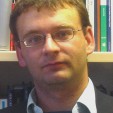
James Nixey
Programme Manager and Research Fellow on the Russia and Eurasia Programme, Chatham House
James Nixey is Programme Manager and Research Fellow on the Russia and Eurasia Programme at Chatham House. His principal expertise concerns the domestic and international politics of Russia and the Post-Soviet South Caucasus and Central Asia. He has published papers and articles in books and journals, spoken at international conferences and commented extensively in the national and global media. He holds degrees in modern languages and international relations and has experience in journalism (as a reporter in Moscow in the late 1990s) and the banking sector, for Goldman Sachs. Publications this year include The Long Goodbye: Waning Russian Influence in The South Caucasus and Central Asia, and “Russia’s Geopolitical Compass: Losing Direction” in, Putin Again: Implications for Russia and the West, published just in advance of the March 2012 presidential elections. Previous work has included the wider repercussions of the 2008 conflict in Georgia, a chapter on The South Caucasus and Central Asia in A Question of Leadership: America’s Role in a Changed World (March 2010), an analysis of the Russo-Iranian relationship. Forthcoming work will examine morality in Russian foreign policy.

Artis Pabriks
Defence Minister of Latvia
Dr. Artis Pabriks graduated from the University of Latvia, Faculty of History and continued his studies in the University of Aarhus, Denmark, receiving Ph.D. in political science in 1996. As an academician, the main fields of his research activity are political theory, ethnic policy, multiculturalism, foreign and security policy. He is also the author and co-author of numerous publications on the previously mentioned topics. In 1996 Dr. Artis Pabriks became the first Rector of Vidzeme University College, later becoming a professor there. He has worked also as a policy analyst and researcher in several NGOs. In 2004 Dr. Artis Pabriks was elected as a Member of the Parliament of Latvia, and later in the same year appointed as a Minister of Foreign Affairs. He served as a Minister until 2007. From 2007 until 2010 he was a Member of the Parliament. Since November 2010 Dr. Artis Pabriks is Minister of Defence of the Republic of Latvia.
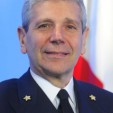
Giampaolo Di Paola
Defence Minister of Italy
Admiral di Paola is an Italian naval officer who has served in the government of Italy as Minister of Defense since November 2011. He has been Chairman of NATO's Military Committee. In addition to numerous command posts he has held various posts, including Assistant Chief of Staff of the Italian Navy,Chief of the Directorate of Defence Policy and Polmil Advisor to the Ministry of Defence's Chief of Defence Staff, and subsequently Chief of the Cabinet Office for the Ministry of Defence. He played an active part in NATO's enlargement process, in the Alliance's outreach policy and in the development of the European Security and Defence Policy, as well as in NATO-EU relations. After acting as Secretary General of Defence / National Armaments Director, he became Chief of Defence and held planning and command responsibility for the Italian Forces' participation in the NATO, EU and Coalition operations conducted in Afghanistan, Iraq, the Balkans, the Mediterranean and Pakistan, and in the United Nations operation in Lebanon.
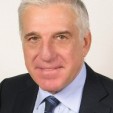
Yannos Papantoniou
Former Economy and Finance Minister of Greece from 1994 to 2001, currently President of the Center for Progressive Policy Research
Yannos Papantoniou was a member of the National Parliament in Greece from 1988-2007, served as an MP (2004-2007), Minister of National Defense (2001-2003), Minister of Economy and Finance (1994-2001). During his time as Economy and Finance Minister, he worked closely with his European ECOFIN partners to prepare for the launch of the euro in Greece. For his achievements he was ‘highly commended’ by EUROMONEY magazine in September 1998 as Finance Minister of the Year. Prior to this, Mr. Papantoniou worked at the OECD (1978-1981), served as an MEP (1981-1984) and Advisor to the Greek Prime Minister on EEC Affairs and Integration. He was elected as Chairman of the Board of Governors of the European Bank for Reconstruction and Development (EBRD) in 1999, and he is President of the Centre for Progressive Policy Research (KEPP). From 2009-2010, he was Visiting Senior Fellow in the Hellenic Observatory within the European Institute at the London School of Economics and Political Science. Mr. Papantoniou has published numerous articles and books on topics related to economic and political developments in Greece, Europe and the wider world scene. He is currently the President of the Centre for Progressive Policy Research, an independent think-tank.
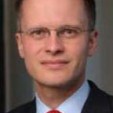
Alexander Pivovarsky
Head of Eastern Europe and Caucasus, European Bank for Reconstruction and Development (EBRD)
Alexander Pivovarsky is a Lead Economist in the Office of the Chief Economist of the European Bank for Reconstruction and Development where he leads economic analysis of Eastern Europe and the Caucasus. From 2001 to 2008, he worked at the International Monetary Fund as macroeconomist for various countries in Eastern Europe, Latin America, Africa, and Central Asia. He was previously Development Associate at the Harvard Institute for International Development. He has published in the areas of development economics, privatisation and corporate governance, banking, and fiscal policy. Alexander holds a PhD in public policy from Harvard University (2001).
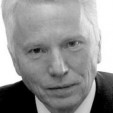
Hans-Friedrich von Ploetz
Ret. German Ambassador
Ambassador von Ploetz retired from the German Foreign Service in 2005, following a long and distinguished career as a diplomat. Between 2002 and 2005 he was Ambassador of Germany to the Russian Federation and, prior to this, he was German Ambassador to the United Kingdom. In the early 1990s he was Permanent Representative of Germany on the North Atlantic Council, having been promoted from the position of Deputy Permanent Representative. Ambassador von Ploetz has also occupied a number of senior positions at the German Ministry of Foreign Affairs, heading departments dealing with transatlantic and European security issues. He was educated at the University of Marburg and received his doctorate in law in 1967. In 2009 he was appointed as a Member of the Group of Experts for Drafting NATO’s New Strategic Concept.

Vesna Pusic
Minister of Foreign and European Affairs of the Republic of Croatia
Vesna Pusic is Minister of Foreing and European Affairs since December 23, 2011. She is Vice-President of the European Liberal Democratic and Reform Party, elected for the 3rd term. She was the Chairperson of the National Committee for Monitoring the Accession Negotiations between Croatia and the EU from 2008 till 2011. In 2000 she was elected as a Member of Croatian Parliament and later in the 2003 she became Deputy Speaker of Croatian Parliament. From 2008 till 2011 she was Chairperson of the NHS and HSU parliamentary group. She graduated from the University of Zagreb, Faculty of Philosophy (1976) and received her Doctor’s degree in Sociology in 1984 from the University of Zagreb.

Pauls Raudseps
Commentator, Magazine “IR”
Pauls Raudseps is one of Latvia's leading journalists and commentators. He writes on a wide variety of topics, including economics, politics, international affairs, and history. Born in the United States, Mr. Raudseps received a degree in Russian and Soviet Studies from Harvard University. In 1990 he moved to Latvia to work for the Popular Front. He was one of the founders of Diena, which for many years was Latvia's leading daily newspaper. Having worked for almost 19 years at the newspaper as managing editor and editorial page editor, he left Diena in October, 2009, to found the weekly news magazine and website "Ir", where he is both a commentator and chairman of the advisory board.

Alan Riley
Director of the Master of Law Programme at the City Law School, United Kingdom
Professor Alan Riley has written extensively on EU and Russian energy markets. He focuses principally on the interaction of energy liberalisation and the impact it can have on energy security. His recent papers include, The Russian Gas Deficit: Consequences and Solutions (2006) CEPS Brussels; Out of Gas (with Frank Umbach) DGAP Berlin 2007; Energy Security, Gas Market Liberalisation and our Energy Relationship with Russia (2007) European Parliament, Foreign Affairs Committee paper; Nordstream and Economic and Market Analysis of the North European Pipeline Project (2008-2009) European Parliament Foreign Affairs Committee paper; EU-Energy Liberalisation-Coming to a Member State Near You (2008) Competition Law Review; De-Weaponising the Energy Weapon, House of Commons Defence Select Committee (2009); Can Nordstream and Southstream Survive in a Changing Gas Market? OGEL Special Issue EU-Russia Relations (2009); The Yukos Decision: Profound Implications for the EU-Russia Energy Relationship? (2009) CEPS Brussels. He is currently writing a book on energy security and market liberalisation.
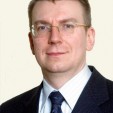
Edgars Rinkevics
Minister of Foreign Affairs of Latvia
Edgars Rinkevics is Minister of Foreign Affairs since October 25, 2011. He was Head of the Chancery at the Chancery of the President of Latvia from October 2008 till October 2011. He also served as State Secretary in the Ministry of Defence of the Republic of Latvia from Augugust 1997 till October 2008. He also worked as Chief of the Office for organising the NATO Summit of Heads of State and Government, which took place in Riga, 2006. Mr. Rinkevics graduated from University of Latvia and received his Master’s degree in Political Science in 1997. From 1999-2000 he also studied at the U.S. National Defence University, Industrial College of the Armed Forces and has a graduate degree in National Resource Strategy.
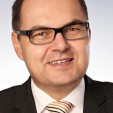
Christian Schmidt
Parliamentary State Secretary to the Federal Minister of Defence of Germany
Christian Schmidt was born in Obernzenn in the district of Neustadt an der Aisch-Bad Windsheim on 26 August 1957. He is married to Dr. Ria Schmidt with two children. After graduating from grammar school he served as a conscript in the 1st Mountain Infantry Division. He then studied law in Erlangen and Lausanne. Having completed his education in 1985 with the second state examination in law he worked as a lawyer specializing in labour and competition law. Between 1984 and 1990 Christian Schmidt was a community and district councillor. In 1990 he was elected to the Federal German Parliament. There he served as spokesman of the CSU parliamentary group for foreign and security policy and as a member of the Foreign Affairs Committee. From 1994 he was a deputy member of the Defence Committee. From 1999 he has been a member of the Coordination Council of the German-Czech Consultation Forum. From October 2002 Schmidt was the defence policy spokesman of the CDU/CSU parliamentary group and served as a member of the Defence Committee and a deputy member ob the Foreign Affairs Committee. Since 23 November 2005 the defence expert Christian Schmidt has been Parliamentary State Secretary to the Federal Minister of Defence. On 8 October 2011 he was elected as deputy party leader of the CSU.

Simon Serfaty
Zbigniew Brzezinski Chair (Emeritus) in Global Security and Geostrategy at the Center for Strategic and International Studies
Professor Simon Serfaty is a prolific writer on transatlantic and intra-European issues. Some of his most recent books include Architects of Delusion: Europe, America, and the Iraq War (2008), Vital Partnership: Power and Order (2005), La tentation impériale (2004), and many others. He is also the editor and principal author of many other books prepared various groups of American and European experts and personalities he gathered to work on major issues of vital interest to the United States and the states of Europe. These include, most recently, A Recast Partnership? Institutional Dimensions of Transatlantic Relations (2008) and Visions of the Atlantic Alliance (2005). Professor Serfaty is currently writing a book on the post-Western world and its implications for U.S. and European interests and policies. An occasional witness for the U.S. Congress and some legislative bodies in Europe, including the European Parliament, he holds a PhD in political science from the Johns Hopkins University. Born in Casablanca, Morocco, and a naturalized U.S. citizen since 1965, Professor Serfaty was made a Knight of the Legion of Honor by French President Nicolas Sarkozy in July 2008. The first holder of the Zbigniew Brzezinski Chair in Global Security and Geopolitics at the Center for Strategic & International Studies, where he previously directed the Europe Program (1994-2004), Dr. Serfaty is also a professor of US foreign policy and Eminent Scholar at Old Dominion University in Norfolk, Virginia.
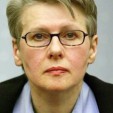
Lilia Shevtsova
Senior Associate of the Carnegie Endowment Moscow
Lilia Shevtsova chairs the Russian Domestic Politics and Political Institutions Program at the Carnegie Moscow Center, dividing her time between Carnegie’s offices in Washington, DC and Moscow. She has been with Carnegie since 1995. Shevtsova is a member of the editorial board for the journals American Interest, Pro et Contra,Demokratizatsiya, and the Journal of Democracy. She is a participant in the Davos World Economic Forum’s ongoing program “Global Redesign Initiative,” senior research associate at the Russian Academy of Sciences’ Institute of Economics, and associate fellow at the Royal Institute of International Affairs (Chatham House). She is also a member of the board for the Institute for Human Sciences at Boston University, the Women in International Security international association, the Liberal Mission Foundation, and the New Eurasia Foundation.
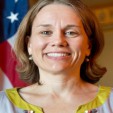
Julianne Smith
Deputy National Security Advisor to the Vice President
Julianne (“Julie”) Smith became the Deputy National Security Advisor to the Vice President in April 2012. Prior to this posting, she served as the Principal Director for European and NATO Policy in the Office of the Secretary of Defense in the Pentagon. In that capacity, Julie acted as the principal staff assistant and advisor to the Assistant Secretary of Defense for International Security Affairs for all matters falling within the broad spectrum of NATO and European policy. Her office also managed the Department’s bilateral relationships with 31 European countries. Prior to joining the Obama administration, Julie served as the director of the CSIS Europe Program and the Initiative for a Renewed Transatlantic Partnership, where she led the Center’s research and program activities on U.S.-European political, security, and economic relations. She is a recipient of the American Academy’s Public Policy Fellowship, the Robert Bosch Foundation Fellowship, and the Fredin Memorial Scholarship for study at the Sorbonne in Paris. She received her B.A. from Xavier University and her M.A. from American University.

Vladimir Socor
Senior Fellow at the Jamestown Foundation, United States of America
Vladimir Socor is a Senior Fellow of the Jamestown Foundation in Washington and its flagship publication, Eurasia Daily Monitor, where he writes a daily analytical article. An internationally recognized expert on the former Soviet-ruled countries in Europe, the South Caucasus, and Central Asia, he covers Russian and Western policies there, focusing on regional security issues, secessionist conflicts, energy policies, and NATO policies and programs. Mr. Socor is a frequent speaker at U.S. and European policy conferences and think-tank institutions as well as a regular guest lecturer at the NATO Defense College and at Harvard University's National Security Program's Black Sea Program. He is also a frequent contributor to edited volumes. Mr. Socor was previously an analyst with the Radio Free Europe/Radio Liberty Research Institute (1983-1994). Vladimir Socor received a Bachelor of Arts in History from the University of Bucharest, and a Master of Philosophy in East European History from Columbia University in 1977. He worked as an analyst for the Radio Free Europe/Radio Liberty Research Institute in Munich (1983–1994) and the Jamestown Foundation in Washington D.C. (1995–2002), and then as a senior fellow at the Institute for Advanced Strategic and Political Studies in Washington, D.C. (2002–2004).
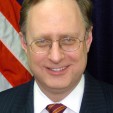
Alexander Vershbow
Deputy Secretary General of NATO
Ambassador Vershbow took up his position in February, 2012 after serving for three years as the U.S. Assistant Secretary of Defense for International Security Affairs. In that position, he was responsible for coordinating U.S. security and defense policies relating to the nations and international organizations of Europe (including NATO), the Middle East and Africa. From 1977 to 2008, Alexander was a career member of the United States Foreign Service. He served as U.S. Ambassador to the North Atlantic Treaty Organization (1998-2001); to the Russian Federation (2001-2005); and to the Republic of Korea (2005-2008). Amb. Vershbow is a long-time student of Russian Affairs and international relations. He received a B.A. in Russian and East European Studies from Yale University (1974) and a Master’s Degree in International Relations and Certificate of the Russian Institute from Columbia University (1976).

Kurt Volker
Executive Director of the McCain Institute for International Leadership
Kurt Volker is Executive Director of the McCain Institute for International Leadership, as well as a Senior Fellowat the Center for Transatlantic Relations at Johns Hopkins University’s School of Advanced International Studies. He is also a member of the Board of Directors of the Wall Street Fund and a Trustee of the Institute for American Universities in Aix-en-Provence, France. He has taught Transatlantic Relations at the George Washington University Elliott School of International Affairs and is a Member of the Strategic Advisors Group at the Atlantic Council. Ambassador Volker was a career member of the U.S. Senior Foreign Service, with over 23 years of experience working on European political and security issues under five U.S. Administrations. He served as Ambassador of the United States to the North Atlantic Treaty Organization (NATO) from 2008 to 2009. Prior to his service at NATO, Ambassador Volker served as Principal Deputy Assistant Secretary for European and Eurasian Affairs, from 2005 until 2008, where he was responsible for U.S. policy on U.S.-European Union relations, NATO, the OSCE, and numerous bilateral relationships.
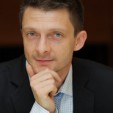
Steffen Weber
Secretary General of the EU Arctic Forum; Expert Adviser on the Arctic Report
Mr. Weber is the co-founder and Secretary General of the EU ARCTIC Forum, the cross-party and cross – issue Arctic Forum, which organizes expert and stakeholder input into the political process and facilitate debates that is seen as the political driving engine on Arctic policies in Brussels. He has worked in the European Parliament as Chief Adviser on the Arctic Report and Adviser on foreign affairs, resources, energy and development. Prior to these commitments he developed and directed a project by the Konrad-Adenauer-Stiftung, a German Think Tank, and gained experience as a Political and Legal Counsel & Lawyer in International Law Firms. Mr. Weber has an Academic background in law and political science and is affiliated with several think tanks and institutes in Europe, including Konrad-Adenauer-Foundation, CES, The European Geopolitical Forum and the Geopolitics North Network including CSIS, MGIMO, IUH and SWP.

Andrew Wilson
Senior Policy Fellow, European Council on Foreign Relations
Andrew Wilson is a Senior Policy Fellow at the European Council on Foreign Relations and Reader in Ukrainian Studies at University College London. He has worked extensively on the comparative politics of the post-Soviet states since 1990. His latest book Belarus: The Last European Dictatorship will be published by Yale University Press in October 2011. His other recent books include The Ukrainians: Unexpected Nation (Yale UP, third edition, 2009), Ukraine’s Orange Revolution (Yale UP, 2005) and Virtual Politics: Faking Democracy in the Post-Soviet World (Yale UP, 2005). His publications at ECFR include Dealing with Yanukovych’s Ukraine , The Limits of Enlargement-lite: EU and Russian Power in the Troubled Neighbourhood , Meeting Medvedev: The Politics of the Putin Succession and Can the EU Win the Peace in Georgia? (all available at www.ecfr.eu)





